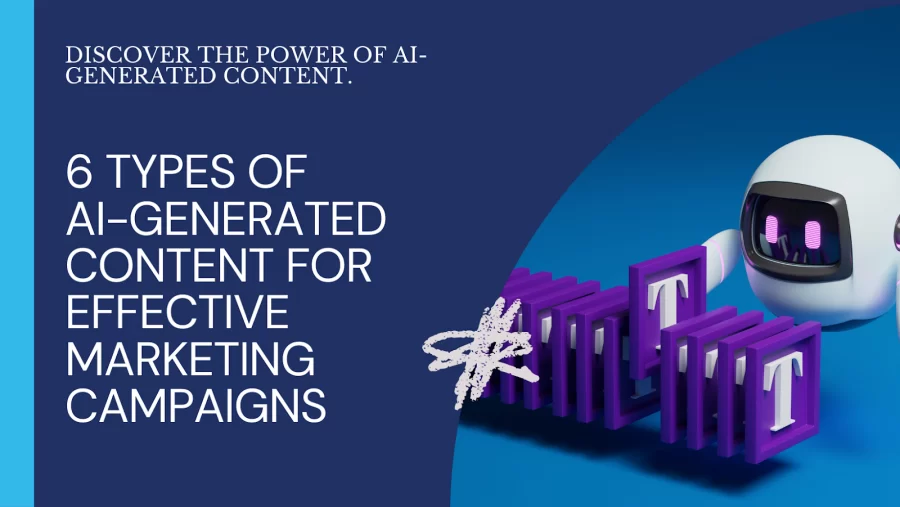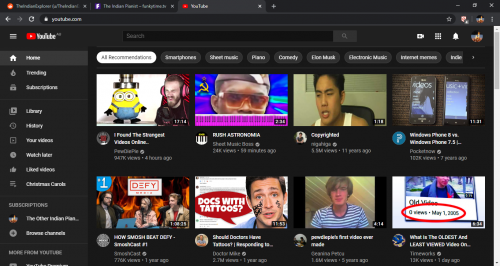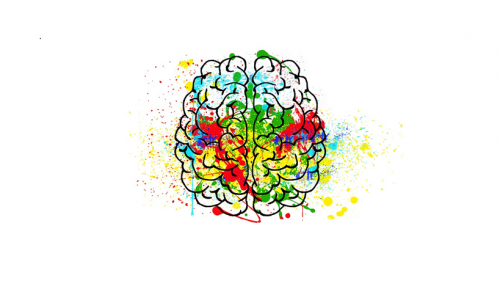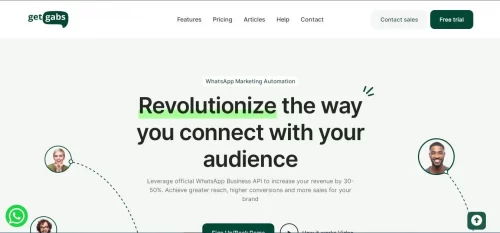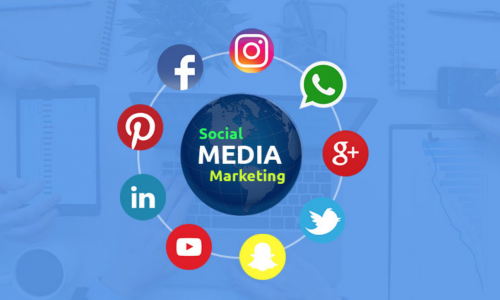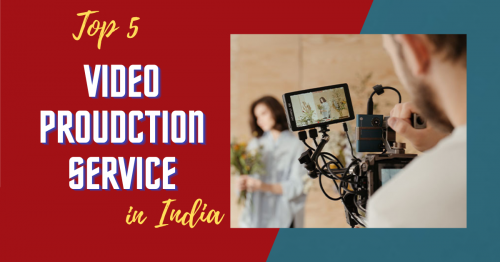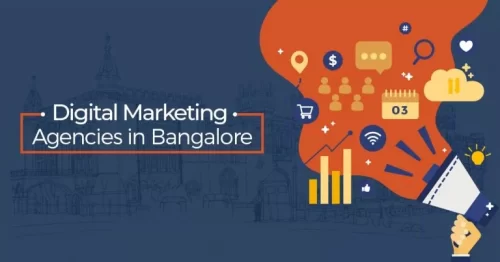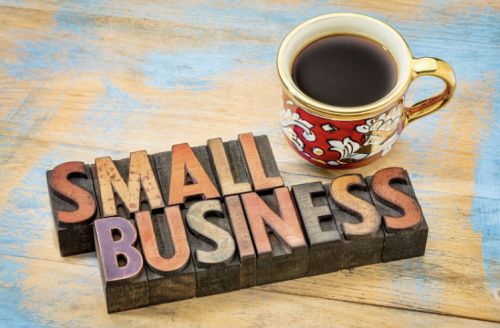In his interview with British Prime Minister Rishi Sunak, Elon Musk said, “AI will create a future of abundance where there is no scarcity of goods and services.”
It is somewhat true that in the online world, AI has been helpful, especially for businesses, in automating their processes and making their products and services more efficient. For instance, AI-generated content is now an essential part of modern marketing strategies and is quite effective. Consider this:
- Studies indicate that AI-driven content creation and management solutions will contribute over $2.6 to $4.4 trillion in global revenue.
- Businesses utilizing AI-generated emails experience a 13.44% increase in click-through rates.
- Research suggests that by integrating AI-generated tools, marketing teams can witness up to a 5% improvement in conversion rates.
Leveraging AI-generated content offers other advantages, such as:
- Faster Response Time and Real-time Optimization
- Improved Content Quality and Relevance
- Enhanced Personalization and Targeting
- Increased Efficiency and Productivity
- Cost-effectiveness and Scalability
The primary aim of this outline is to provide marketers and businesses with a comprehensive understanding of various AI-generated content formats, including:
1. Automated Text
Automated text generation involves the use of AI algorithms to produce written content. Popular AI writing tools for automatic text generation include OpenAI’s GPT-3 and Google’s BERT. Platforms like Writesonic, AI Paragraph Writer, and Copy.ai help with different content needs. They automatically create or update content to match the latest trends, and give you the best results quickly.
Use cases of automated text in marketing campaigns include:
Product Descriptions
AI-generated product descriptions enhance e-commerce experiences by providing accurate, compelling, and SEO-friendly content that drives conversions.
Social Media Captions
Marketers leverage AI to create captivating social media captions that attract their prospective followers and promote brand visibility.
Email Marketing Content
AI automates email content creation, enabling marketers to deliver personalized messages to the appropriate recipients, leading to higher open and click-through rates.
2. Image and Graphic Design
AI-powered image and graphic design uses machine learning algorithms to create and manipulate visual content. Notable AI tools for image and graphic design include Adobe Sensei, Canva, and DeepArt, each offering unique features customized to different design needs.
Here are three of its best use cases:
Social Media Graphics
AI-generated social media graphics enable marketers to create visually appealing posts quickly, incorporating branded elements, messaging, and imagery.
Website Banners and Visuals
AI facilitates the creation of eye-catching website banners and visuals, ensuring consistent branding across web pages while optimizing design elements for enhanced user experience and conversion rates.
Logo Design
AI-powered logo design platforms like LogoAI.com, Looka, and Designhill empower businesses to efficiently create professional and distinctive logos.
3. Virtual and Augmented Reality Experiences
Augmented and Virtual Reality (AR/VR) technologies immerse users in virtual environments or overlay digital content onto the real world. AI-powered VR and AR platforms such as Unity, Unreal Engine, and Snapchat’s Lens Studio enable developers to create sophisticated and interactive experiences.
Below are some ways you can integrate VR and AR into marketing campaigns
Virtual Product Try-On Experiences
Retailers utilize AI-powered VR applications to enable visitors to wear products, such as clothing, accessories, or cosmetics, virtually.
Interactive Virtual Tours
Real estate agents leverage AI-powered AR apps to provide virtual property tours, allowing potential buyers to explore homes remotely and visualize their living spaces in detail.
Augmented Reality Product Demonstrations
Brands integrate AI-driven AR experiences into marketing campaigns to demonstrate product features, functionality, and benefits in real-world settings. For example, furniture retailers use AR apps to overlay virtual furniture onto customers’ living spaces.
4. Videos
AI-driven video content creation uses learning algorithms to automate many portions of the video production process, including editing, animation, and customization. Leading AI tools for video content creation include VEED, Lumen5, and Magisto, each offering unique functionalities like text-to-speech and AI voice generator to simplify video production tasks.
Use Videos in your marketing campaigns through:
Explainer Videos
Marketers leverage AI-driven video creation platforms to produce explainer videos that simplify complex concepts, products, or services. These videos enhance brand storytelling, educate consumers, and drive conversion rates by effectively communicating value propositions and benefits.
AI Avatar Product Demos
AI-powered video creation tools, often recognized as the AI video generator, enable businesses to create virtual spokespersons or avatars to showcase products and services in a personalized and interactive manner. This approach to AI Avatar Product Demos offers a seamless integration of technology and creativity, enhancing the user experience.
Video Ads
AI-driven content creation platforms empower marketers to produce compelling video ads optimized for various digital channels and target demographics.
5. Chatbots and Conversational AI
Chatbots and conversational AI systems are AI-powered technologies that simulate human-like interactions through text or speech. Similarly, Chatbots can understand user queries, provide relevant information, and execute predefined tasks through natural language processing and machine learning algorithms. Examples of AI-powered chatbot platforms include IBM Watson Assistant, Dialogflow by Google, and Microsoft Azure Bot Service.
Here are some use cases of conversation AI in marketing:
Customer Service
AI-powered chatbots serve as virtual assistants, addressing customer inquiries, resolving issues, and providing support 24/7.
Lead Generation
Chatbots facilitate lead-generation efforts by captivating website visitors in personalized conversations, qualifying leads based on predefined criteria, and nurturing prospects through targeted messaging and follow-up actions.
Interactive Content Experiences
Conversation AI enhances Interactive Content experiences by guiding users through quizzes, surveys, and storytelling. It collects valuable insights and promotes activities through dynamic and personalized interactions.
6. Data-Driven Content
Data-driven content optimization uses AI and analytics tools to analyze user data, behavior patterns, and performance metrics. Popular AI tools for data-driven content optimization include Google Analytics, SEMrush, and Optimizely. Each platform offers advanced analytics and experimentation capabilities to inform content decisions and drive continuous improvement.
Below are some ways to integrate them into your marketing strategy:
A/B Testing and Optimization
AI-powered platforms enable marketers to conduct A/B tests on content variants, such as headlines, images, and calls to action. It identifies the most effective elements and optimizes content performance for higher conversion rates.
Content Performance Analysis
AI analytics tools provide insights into content performance metrics, such as traffic, interactions, and conversion rates. It allows marketers to assess the efficiency of their content techniques and make data-driven decisions to optimize future campaigns.
SEO Optimization
AI-driven SEO tools analyze search engine algorithms, keyword trends, and traffic potential to optimize content for higher search rankings and visibility.
Takeaways
Throughout this article, we explored six types of AI-generated content:
- automated text
- image and graphic design
- virtual and augmented reality experiences
- videos
- chatbots and conversational AI
- data-driven content optimization
Incorporating AI-generated content into marketing strategies offers numerous benefits, including:
- increased efficiency
- enhanced personalization
- improved content quality
- scalability
- leads to higher engagement, conversion rates, and ROI
We anticipate further advancements in AI technologies, enabling even more sophisticated and personalized marketing content customized to individual preferences and behaviors.

